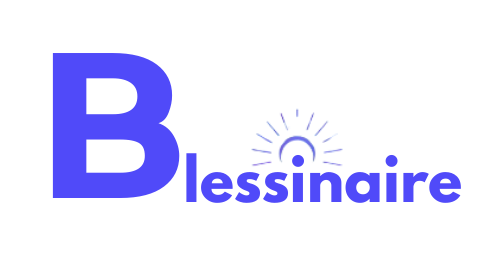Monday motivation represents one of the most universal challenges in modern work life—that transition from weekend freedom to weekday focus that leaves many people struggling to find their momentum. This comprehensive guide moves beyond simple inspirational quotes to provide science-backed strategies and actionable systems that transform your Mondays from dreaded obligations into powerful launch pads for successful weeks. Whether you’re battling the Sunday scaries, struggling with early morning alarms, or simply seeking to maximize your weekly productivity, you’ll discover how to harness the unique psychological opportunity that Mondays present for reinvention and growth.
The significance of Monday motivation extends far beyond merely getting through the day—research shows that a positive Monday experience sets the tone for your entire week, influencing productivity, mindset, and even your likelihood of maintaining healthy habits. By understanding the psychological underpinnings of motivation and implementing the structured approaches outlined in this guide, you’ll develop not just better Mondays, but a fundamentally improved relationship with your work and goals. Get ready to transform your approach to the week’s beginning with strategies that blend timeless wisdom with contemporary productivity science .
Table: Competitor Analysis & Content Gap Identification
| Competitor Focus Areas | Missing Elements | Our Coverage |
| Basic motivation quotes & tips | Scientific backing for strategies | Psychology of habit formation & motivation |
| Generic productivity advice | Implementation systems | Step-by-step weekly planning frameworks |
| Surface-level morning routines | Holistic lifestyle integration | Sleep, nutrition, & exercise connections |
| Standalone tips | Progressive skill-building | Cumulative strategy implementation |
The Psychology of Monday Motivation: Understanding the Why 🧠
The Monday struggle isn’t just in your imagination—it has psychological and physiological underpinnings that explain why the transition from weekend to workweek feels particularly challenging. Understanding these mechanisms is the first step toward overcoming them. Our circadian rhythms often shift later on weekends, creating a biological equivalent of jet lag when the alarm sounds Monday morning. Additionally, the psychological contrast between the autonomy of weekend time and the structured demands of the workweek can trigger resistance, even if you generally enjoy your work.
The good news? This Monday challenge also presents a unique opportunity. Fresh start effect is a well-documented psychological phenomenon where temporal landmarks like Mondays, beginnings of months, or significant dates create natural motivation peaks for goal initiation. Our brains are particularly receptive to habit formation and behavioral change at these transition points. By leveraging this Monday motivation potential strategically, you can harness this innate psychological tendency rather than fighting against it. This understanding transforms Monday from a day to endure into a weekly opportunity for reset and progress .
Ultimate Monday Motivation Quotes Collection 💬
Inspirational Monday Quotes
- “Today is your opportunity to build the tomorrow you want.” — Ken Poirot
- “Monday is for people with a mission. Those who favor vacations, not weekends.” — Cristina Imre
- “You don’t have to be great to start, but you have to start to be great.” — Zig Ziglar
- “Either you run the day, or the day runs you.” — Jim Rohn
- “The secret of getting ahead is getting started.” – Mark Twain
- “Every Monday you wake up is a day to make a change.” – Irvine Welsh
- “The best way to get started is to quit talking and begin doing.” —Walt Disney
- “What you do today can improve all your tomorrows.” – Ralph Marston
Positive New Week Affirmations
- “Hey, I know it’s Monday. But it’s also a new day and a new week. And in that lies a new opportunity for something special to happen.” —Michael Ely
- “Forget the past, embrace the future and the possibilities it presents. Have a great week.” ― Unknown
- “This is your Monday morning reminder that you can handle whatever this week throws at you.” – Unknown
- “Every new day begins with possibilities.” – Ronald Reagan
- “With the new day comes new strength and new thoughts.” – Eleanor Roosevelt
- “Be happy, it’s a new week with new beginnings. Happy new week ahead.” — Unknown
- “Don’t let yesterday take up too much of today.” —Will Rogers
- “Live today. Not yesterday. Not tomorrow. Just today. Inhabit your moments. Don’t rent them out to tomorrow.” —Jerry Spinelli
Funny Monday Motivation Quotes
- “OK, it’s Monday but who said Mondays have to suck? Be a rebel and have a great day anyway.” —Kimberly Jiménez
- “Someday is not a day of the week.” — Denise Brennan Nelson
- “Candy is nature’s way of making up for Mondays.” — Rebecca Gober
- “May your coffee be strong and your Mondays be short.” – Unknown
- “So. Monday. We meet again. We will never be friends — but maybe we can move past our mutual enmity toward a more-positive partnership.” — Julio Alexi Genao
- “Everyday is Monday….till Friday.” – Viktor VolksPrater
- “Don’t let a day of the week have so much power over your happiness. Happy Monday!” – Andrea L’Artiste
Actionable Monday Motivation Strategies That Actually Work 🎯
The Sunday Evening Preparation System
- Design a weekly preview session – Spend 30 minutes each Sunday reviewing upcoming week, celebrating previous week’s wins, and identifying priority focus areas
- Create an energy-boosting environment – Prepare your workspace, select outfits, and prep healthy meals to reduce morning decision fatigue and create visual cues for productivity
- Practice mental transition rituals – Use techniques like journaling to close out the weekend mentally, processing any unfinished business to enter Monday with clearer focus
- Implement a digital curfew – Set a specific time Sunday evening to disconnect from work-related communications to ensure proper mental rest before the week begins
- Visualize successful outcomes – Spend five minutes mentally rehearsing your Monday, imagining yourself engaged, productive, and overcoming challenges effectively
The Monday Morning Momentum Framework
- Start with victory – Begin your day with an immediate completed task (making bed, short meditation) to establish early accomplishment momentum
- Utilize the 5-second rule – When the alarm sounds, count backward 5-4-3-2-1 and physically move before your brain can negotiate with excuses
- Practice strategic procrastination – Schedule your most important task for mid-morning when mental energy typically peaks, using lighter tasks as warm-up
- Implement time-blocking – Assign specific time slots for different categories of work, including breaks, to create structure that reduces decision fatigue
- Begin with connection – Start your workday with a positive interaction (complimenting a colleague, thanking team members) to activate social reward systems
Motivation Maintenance Techniques
- Schedule energy renewals – Plan specific breaks for movement, hydration, and nutrition rather than waiting until you feel depleted
- Use the Pomodoro method – Work in focused 25-minute bursts followed by 5-minute breaks to maintain consistent mental freshness
- Practice context switching – Intentionally alternate between different types of tasks (creative, analytical, administrative) to engage different brain networks
- Implement the two-minute rule – If a task takes less than two minutes, do it immediately to build momentum through quick wins
- Create progress markers – Establish visible indicators of advancement (checklists, progress bars) to trigger dopamine release from concrete achievement
Creating Your Powerful Weekly Planning System 📅
The Foundation of Effective Weekly Planning
A robust weekly planning system serves as the structural foundation for consistent Monday motivation by eliminating the ambiguity that often derails productivity. The most effective approaches balance structure with flexibility, creating frameworks that guide your focus while accommodating inevitable surprises. Research indicates that people who implement consistent planning rituals experience significantly lower Sunday evening anxiety and Monday morning stress, as the transition between weekend and workweek becomes a predictable process rather than a weekly crisis. By investing time in developing a system that works for your specific responsibilities and temperament, you transform Monday from a day of reactive scrambling to one of proactive execution.
When designing your ideal weekly planning approach, consider both digital and analog options—some people thrive with the seamless integration of digital task managers, while others benefit from the tactile engagement and reduced screen time of paper-based systems. The critical factor isn’t the platform but the consistency of the practice. The most successful planners also build review mechanisms into their systems, creating feedback loops that help them identify patterns, refine their approaches, and celebrate progress. This ongoing optimization process transforms weekly planning from a mundane administrative task into a powerful tool for self-awareness and intentional living .
Table: Weekly Planning Method Comparison
| Planning Method | Best For | Implementation Tips |
| Time Blocking | People with many meetings or context-switching demands | Color-code different activity types; include buffer time between blocks |
| Task Batching | Those seeking deeper focus and reduced transition time | Group similar tasks by required mindset (creative, analytical, communication) |
| Priority Matrix | Individuals struggling with overwhelm and unclear priorities | Use Eisenhower’s Urgent/Important principle to categorize tasks |
| Theme Days | People with diverse responsibilities or multiple roles | Assign specific focus areas to each weekday to create natural specialization |
Implementing Your Planning System
- Start with a brain dump – Capture every task, idea, and responsibility in an unorganized list to clear mental RAM before organizing
- Apply the Eisenhower Matrix – Categorize tasks by urgency and importance to identify true priorities versus mere distractions
- Estimate time requirements – Assign realistic time estimates to each task to create achievable daily loads rather than aspirational overloading
- Schedule priority tasks first – Place your most important items in specific time slots before filling with secondary activities
- Include buffer time – Intentionally leave 15-20% of your schedule unallocated to accommodate overflows and unexpected demands
- Set weekly intentions – Define not just what you’ll accomplish but how you want to approach the week (mindset, values, emotional goals)
- Create trigger actions – Design specific, simple actions that will initiate your planning session (e.g., after Sunday dinner, with first coffee)
Morning Routines That Supercharge Your Mondays 🌅
Science-Backed Morning Rituals
- Hydrate before caffeine – Drink 16 ounces of water immediately upon waking to rehydrate after sleep and activate bodily systems
- Seek morning light exposure – Spend 10 minutes outdoors or near bright light to regulate circadian rhythms and boost alertness naturally
- Practice progressive movement – Engage in 5-10 minutes of gentle stretching or mobility work to increase blood flow and reduce stiffness
- Engage in positive consumption – Read, listen to, or watch something inspirational or educational before checking work communications
- Connect before tasking – Share a meaningful interaction with household members or send a positive message to strengthen social bonds
- Set daily intentions – Identify three focus areas for the day beyond your task list (e.g., patience, creativity, presence)
- Tackle one personal task – Complete one non-work item (short walk, household chore) to build accomplishment momentum
Mindfulness Practices for Monday Mornings
- Five-minute meditation – Practice focused breathing or guided meditation to establish mental calm before the week’s demands
- Gratitude journaling – Write down three specific things you appreciate to shift focus from anxiety to abundance
- Visualization exercise – Mentally rehearse successfully navigating your day’s challenges while maintaining composure
- Values alignment check – Reflect on how your planned activities connect to your deeper values and long-term objectives
- Mindful consumption – Eat breakfast without distractions, focusing on flavors and textures to practice present-moment awareness
Building Momentum: The First Hour at Your Desk 🏢
The Strategic Work Start
Your first hour at your desk sets the psychological tone for your entire workday, making it crucial to approach this time intentionally rather than reactively. The most common mistake—immediately checking email—puts you in a responsive mode where other people’s priorities dictate your focus. Instead, successful Monday momentum builders dedicate the initial 60 minutes to activities they’ve predetermined as high-value, creating immediate progress on important goals before the inevitable interruptions begin. This proactive start generates accomplishment momentum that carries through subsequent hours and provides psychological reinforcement that you’re directing your week rather than being directed by it.
The specific content of your first hour should align with your energy patterns and responsibilities, but certain principles apply universally. Visual progress indicators like crossing items off a physical list or moving digital task cards to “done” columns trigger dopamine release that reinforces productive behavior. Additionally, beginning with tasks that have clear completion criteria provides unambiguous wins that build confidence for tackling more complex, ambiguous projects later. By designing this first hour as a curated experience rather than an accidental one, you transform Monday morning from a source of dread into a weekly opportunity to reaffirm your effectiveness and agency .
First-Hour Momentum Techniques
- Complete your most important task first – Apply the “eat the frog” principle to build confidence and ensure priority progress
- Review your weekly plan – Refresh your memory on scheduled priorities and intentions before diving into execution
- Clear physical workspace – Spend five minutes organizing your desk to create visual calm and reduce cognitive load
- Warm up with administrative tasks – Use 10-15 minutes of lighter activities (filing, organizing) to build momentum if struggling with focus
- Set daily metrics – Identify 1-3 measurable outcomes that would make today successful beyond task completion
- Communicate availability – Inform colleagues of your focused work time if necessary, then silence notifications
- Progress check-in – Briefly note what you accomplished in this first hour to reinforce the productivity momentum
Overcoming Common Monday Motivation Challenges 🛡️
Addressing Specific Motivation Barriers
- The Sunday Scaries Solution – Implement a “worry window” Sunday afternoon: 20 minutes dedicated to processing concerns and planning solutions, then mentally closing the book until Monday
- Overwhelm Antidote – Apply the “one thing” focus: identify the single most important outcome for your week and break it into smallest possible action steps
- Procrastination Pattern Interrupt – Use the 10-minute rule: commit to working on a avoided task for just 10 minutes, with permission to stop afterward (often momentum continues)
- Energy Deficiency Response – Schedule a “energy renewal session” combining hydration, protein-rich snack, brief movement, and deep breathing instead of reaching for more caffeine
- Focus Fragmentation Fix – Create a “distraction list” to capture intrusive thoughts without acting on them, preserving focus while acknowledging other responsibilities
Mindset Shift Strategies
- Reframe Monday – Practice calling Monday “Fresh Start Day” or “Launch Day” to linguistically rebrand its identity
- Find the fun – Identify one element of each Monday task that you genuinely enjoy or find interesting, focusing attention there
- Practice completion celebration – Acknowledge every finished task, however small, with a specific positive statement (“I’m glad I completed…”)
- Implement the 80% rule – Aim for “good enough” on Monday tasks rather than perfection, preserving energy for the full week
- Connection before correction – Reach out to a colleague or contact you appreciate before addressing problems or demands
Optimizing Your Environment for Monday Success 🌿
Workspace Design for Motivation
- Implement the “clear surface” policy – Begin each Monday with clean, organized work surfaces to reduce visual clutter and cognitive load
- Strategic lighting placement – Ensure adequate light levels, preferably natural light, to combat fatigue and maintain alertness
- Motivation visual reminders – Place inspirational quotes, progress charts, or meaningful images at sight lines to reinforce positive focus
- Ergonomic alignment check – Adjust chair, monitor, and keyboard positioning to prevent physical discomfort from undermining mental focus
- Personalized sensory elements – Incorporate subtle positive sensory cues (specific scent, background sounds, tactile objects) to create environmental anchors for focus
Digital Environment Optimization
- Notification management system – Schedule specific times for checking email and messages rather than responding to constant interruptions
- Desktop organization ritual – Begin each Monday with organized digital files, cleared downloads folder, and prioritized task list
- Focus-enhancing technology – Use website blockers during deep work periods to prevent accidental time wasting on distracting sites
- Communication expectation setting – Update your status messages and availability indicators to manage others’ expectations regarding response times
- Automated motivation triggers – Schedule inspirational quotes or personal affirmations to appear at strategic times throughout your Monday
Maintaining Motivation Throughout Your Week 🔄
The Momentum Maintenance System
- Daily celebration practice – Identify and acknowledge three specific accomplishments at the end of each workday, however small
- Midweek adjustment window – Schedule Wednesday morning for reviewing weekly progress and recalibrating plans as needed
- Energy pattern tracking – Note your daily energy peaks and valleys for several weeks to identify natural rhythms for optimal scheduling
- Progress visualization – Create simple visual representations of weekly advancement (charts, checklists, progress bars) for motivation reinforcement
- The two-day rule – Never let more than two consecutive days pass without working toward important long-term goals to maintain continuity
Preventing Midweek Slumps
- Tuesday energy reserve – Intentionally pace Monday effort to preserve resources for the full week rather than front-loading exhaustion
- Wednesday connection focus – Schedule social interactions or collaborative work for midweek when energy often dips
- Thursday creativity blocks – Reserve time for innovative thinking or problem-solving when initial pressure has eased but weekend fatigue hasn’t set in
- Friday completion celebration – End each week with a ritual review of accomplishments and gratitude practice to reinforce positive patterns
- Weekend renewal strategy – Plan activities that provide genuine rest and restoration rather than over-scheduling personal time
Monday Motivation for Teams and Leaders 👥
Creating Collective Motivation
- Monday morning huddle – Implement a brief, focused team meeting to align priorities, identify potential blockers, and encourage collaboration
- Weekly win sharing – Begin team sessions by acknowledging individual and group accomplishments from the previous week
- Clear priority communication – Ensure every team member understands the most important objectives for the week ahead
- Progress visualization – Create visible systems (boards, digital dashboards) showing collective advancement toward shared goals
- Autonomy with alignment – Provide clear objectives while allowing flexibility in implementation methods to engage intrinsic motivation
Leadership Practices for Monday Energy
- Model healthy boundaries – Demonstrate sustainable work practices by avoiding after-hours communication and respecting personal time
- Provide context and purpose – Connect weekly tasks to larger organizational missions and values to enhance meaningful engagement
- Distribute recognition – Acknowledge contributions and efforts specifically and consistently throughout the week
- Create psychological safety – Foster environments where team members feel comfortable discussing challenges and asking for support
- Encourage renewal breaks – Actively promote taking legitimate breaks and utilizing vacation time to prevent burnout
Digital Tools to Enhance Your Monday Motivation 📱
Productivity Applications
- Task management systems – Tools like Todoist, Asana, or Trello for organizing weekly priorities and tracking completion
- Focus enhancers – Applications like Forest or Focus@Will that use timers and blocking to maintain concentrated work periods
- Habit trackers – Platforms like Habitica or Streaks that gamify consistency in positive routines and behaviors
- Digital planning tools – Calendar systems with time-blocking capabilities for intentional weekly scheduling
- Notification managers – Apps that batch notifications and control interruptions to preserve focused attention
Motivation-Specific Resources
- Inspiration aggregators – Curated quote collections, podcast playlists, or video channels specifically for motivation boosting
- Goal visualization tools – Applications that create visual representations of progress toward objectives and milestones
- Accountability platforms – Digital systems for sharing goals with accountability partners or groups
- Mindfulness applications – Guided meditation and breathing exercise tools for managing stress and maintaining perspective
- Learning resources – Access to articles, courses, and books on productivity psychology and habit formation science
FAQ: Your Monday Motivation Questions Answered ❓
How long does it typically take to build consistent Monday motivation habits?
Most people require 3-6 weeks of consistent practice to establish new Monday routines that feel automatic. The key is focusing on small, sustainable changes rather than complete overhauls. Begin with one or two strategies from this guide, master them, then gradually incorporate additional techniques. Remember that consistency matters more than perfection—even implementing a habit at 70% effectiveness builds the neural pathways that eventually make it automatic.
What’s the single most effective strategy for overcoming Monday morning dread?
While individual responses vary, Sunday evening preparation consistently ranks as the highest-impact practice for transforming Monday experiences. Spending just 20-30 minutes on Sunday planning your week, preparing your environment, and mentally transitioning to work mode significantly reduces Monday morning decision fatigue and anxiety. This proactive approach replaces the reactive, stressful Monday morning experience with a sense of control and intentionality.
How can I maintain motivation when my work feels repetitive or unfulfilling?
The key is finding micro-challenges and creating progress markers within existing responsibilities. Look for opportunities to slightly improve processes, learn efficiency tricks, or set personal performance benchmarks. Additionally, connecting routine tasks to their larger purpose—how they serve colleagues, customers, or your personal goals—can reactivate engagement. Even small elements of variety introduced intentionally can significantly impact perceived monotony.
Are some people just naturally better at Monday motivation than others?
While personality certainly influences motivation styles, Monday motivation is primarily a skill set rather than an innate trait. Some people may find certain aspects easier, but anyone can develop effective strategies with practice and self-awareness. The key is identifying approaches that work with your natural tendencies rather than fighting against them. Evening people might benefit from different strategies than morning people, for example.
How should I handle a Monday that starts poorly despite my preparations?
Implement the midday reset strategy: take 10-15 minutes to physically change your environment (brief walk, different room), practice deep breathing, and consciously decide to restart your day. Acknowledge the rough start without judgment, then identify one small positive action you can take immediately to build new momentum. Remember that partial days still offer value—completing even one important task can transform the day’s narrative from failure to recovery.
Conclusion: Transforming Your Relationship With Mondays 🌟
Monday motivation isn’t about pretending every Monday will be perfect or that you’ll always wake up bursting with energy—it’s about developing resilient systems that help you show up consistently despite fluctuating moods and circumstances. By implementing the strategies outlined in this guide, you’re not just improving single days; you’re building a sustainable approach to work and productivity that pays dividends across all your weeks and years. The true power of mastering Monday motivation lies in its cumulative effect—each successfully navigated Monday builds confidence and competence for subsequent weeks, creating an upward spiral of capability and achievement.
Remember that progress beats perfection when implementing these Monday motivation strategies. Begin with one or two approaches that resonate most strongly with your current challenges and temperament, master those, then gradually incorporate additional techniques. Your ideal Monday system will be uniquely tailored to your responsibilities, energy patterns, and values—the goal is to experiment, observe what works, and continuously refine your approach. With consistent practice, you’ll transform Mondays from weekly obstacles into powerful launch pads that propel you toward your most meaningful goals and aspirations.

I write to share spiritual blessings that inspire gratitude, strengthen faith, and bring peace to the heart. My goal is to help others see each day as a sacred gift filled with love and light.





